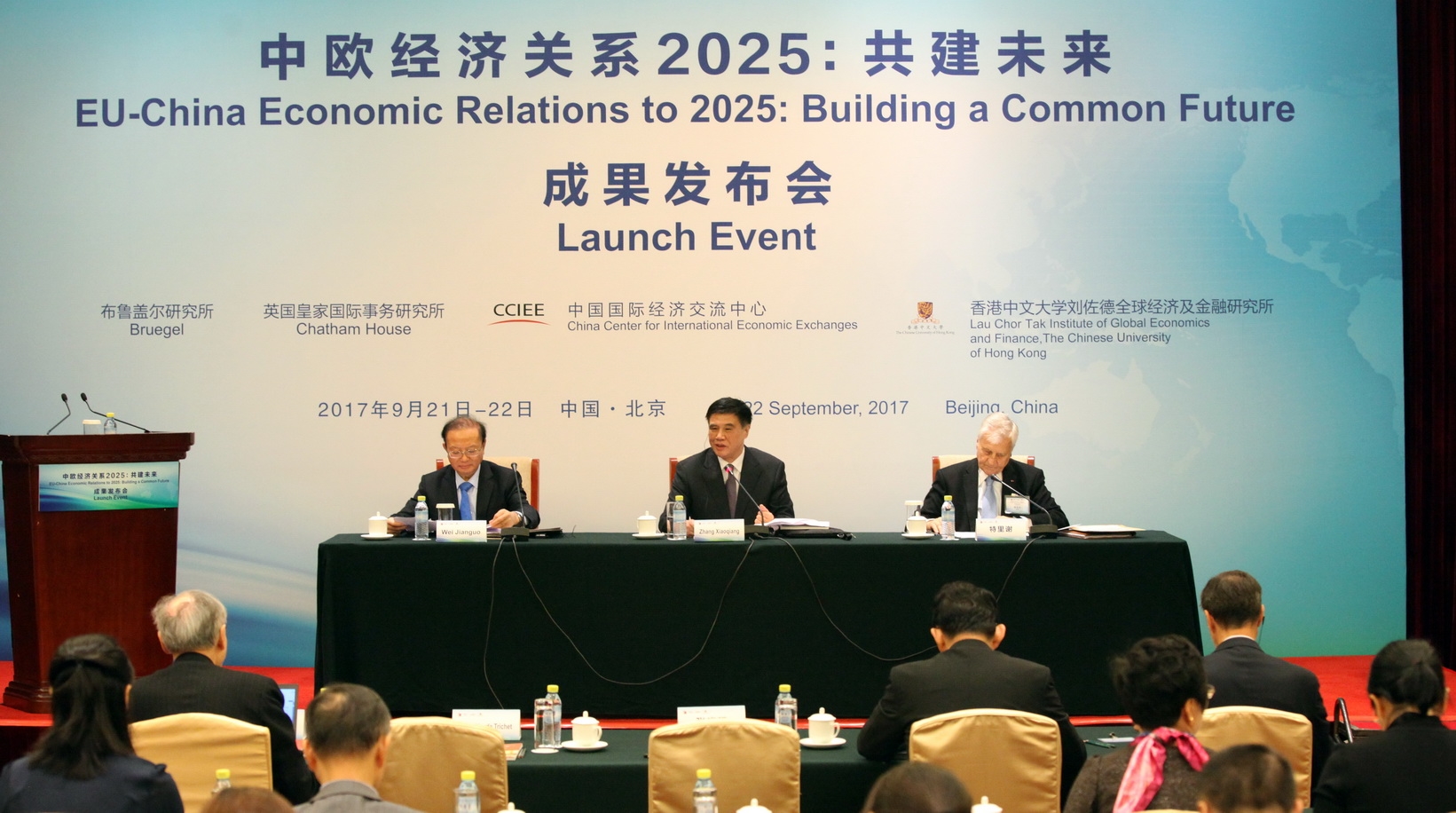EU-China Economic Relations to 2025: Building a Common Future
- Time:2017-09-23
- source:CCIEE
On the morning of September 22, 2017, CCIEE, the Brussels-based think tank Bruegel, Chatham House, and The Institute of Global Economics and Finance at The Chinese University of Hong Kong jointly released the research report in Beijing, EU-China Economic Relations to 2025: Building a Common Future. The report analyzes the status quo of the EU-China economic and trade cooperation, and the direction and paths of reinforcing cooperation in the future. Senior leaders of the four think tanks introduced this joint research project, business leaders and former governmental officials, experts and scholars from China and the EU participated in the launch event.

The report notes that China and the EU are comprehensive strategic partners. Since the bilateral relationship was established in 1975, China and the EU have become two important economies in the world, the EU is now the largest trading partner of China while China is the second largest importing market and a major exporter of the EU. The two sides believe that the multilateralism which is open, effective, rule-based, and conducive to peace and development should become the core of global governance.
The report suggests that China and the EU should consider how they could deepen an all-around trade and economic relationship as uncertainties continue to rise globally. Furthermore, it recommends the two sides to increase trade and investment in China and the EU, or other third parties; promote cooperation on climate change, energy and environment protection as well as global governance; push forward collaboration in technological innovation, infrastructure, financial services and people-to-people exchanges. The opportunities resulted from a wider and deeper EU-China cooperation will not just benefit young people, small enterprises and the general public but also push economic growth, create jobs and raise the well-being of China and the EU, even the world as a whole.
The study documents the differences between the two economies in history, culture, development and economic system, hope that they could strengthen mutual trust and communication in the areas of free and fair trade, two-way investment and market accession so as to create a sound environment for Chinese and European companies. In order to promote the cooperation on energy and climate change, technological innovation and people-to-people exchanges, and connect the Belt and Road Initiative with Europe’s Juncker Plan, the following eight proposals have been adopted by the report:
1. Conclude a bilateral investment agreement as soon as feasible.
2. Initiate negotiations on establishing an EU-China free trade agreement after reaching an agreement on the EU-China Bilateral Investment Treaty.
3. Use China’s Belt and Road Initiative as a platform for further expanding bilateral trade and economic cooperation.
4. Deepen EU-China cooperation on energy security and climate change.
5. Focus on the opportunities offered by new breakthroughs in science, technology and innovation, and undertake win-win cooperation on the new generation of information technology, cyber security, biological medicine, new energy and new energy automobile and other areas.
6. Support further EU-China cooperation in the financial sector.
7. Continue to promote an open world economy and contribute to the strengthening of mechanisms of good global governance.
8. Explore the mechanisms of economic cooperation among China, the EU and the US.
This report is the culmination of an 18-month study by these four think tanks and four symposiums were organized in Brussels, Beijing, London and Hong Kong. During the research, a number of well-respected Chinese and European economists, business leaders and experts offered their valuable feedback.
